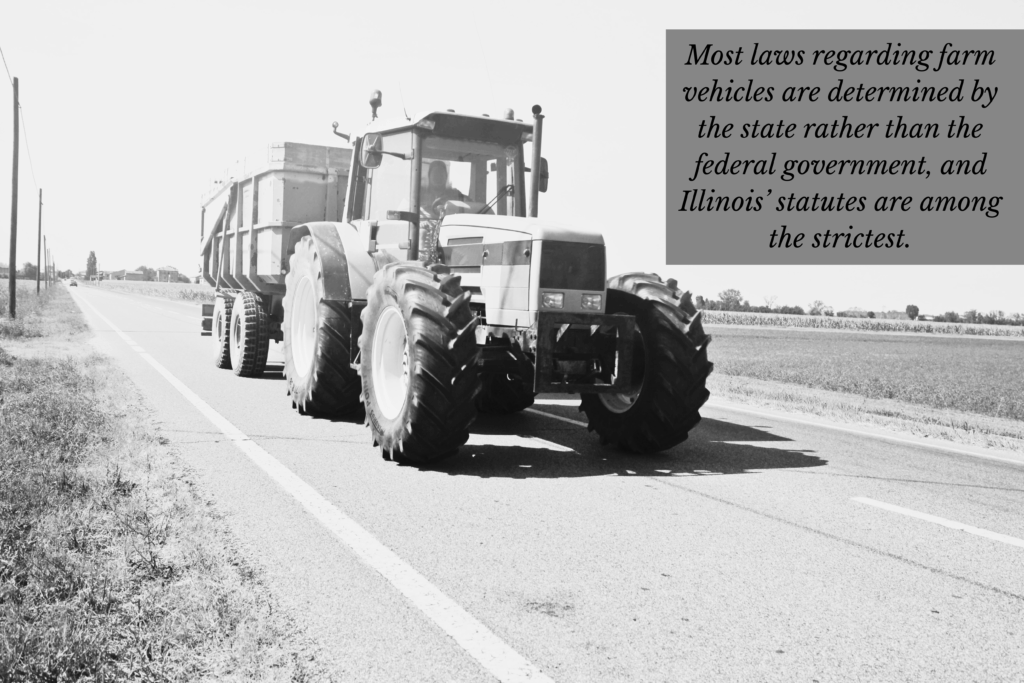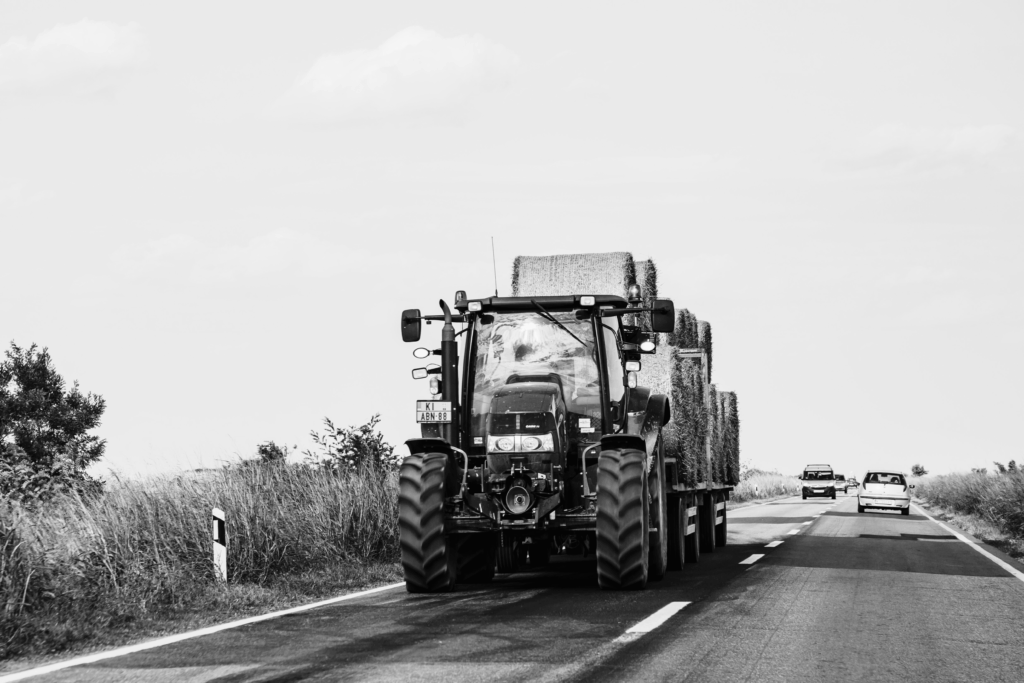When you live in rural Illinois, sharing the road with farm vehicles is a part of life. Unfortunately, so are farm vehicle accidents. By one estimate, more than half of accidents with farm vehicles happen on rural roads where farmers are moving slow-moving, heavy equipment from one field to another.
While drivers need to be aware of agricultural equipment and exercise caution, not every farm vehicle accident is the passenger vehicle’s fault. The rules of the road, along with additional restrictions, apply to farmers and their workers. If you are in a crash with a farm vehicle, you’ll want a farm accident attorney who understands the law and can help prove responsibility and liability.
Danger on Rural Roads
From planting season through harvest time, country roads in Effingham and neighboring counties are dotted with tractors, combines, and grain or livestock trucks. At the same time, on rural roads, drivers may worry less about being stopped for speeding or running a stop sign, as they would in town. And sadly, drunk driving on back roads is all too common.
Crops can obstruct the view around the bend, making it possible for motorists who are unimpaired and obeying the speed limit to hit slower farm vehicles as they come upon them. Passing slow equipment on narrow or hilly roads can also result in a crash.
Farm vehicle accidents can cause serious personal injuries for everyone involved, whether in the passenger vehicle or the person operating the farm equipment. Liability may fall on one of the drivers or a third party, such as the owner of the equipment. Hiring a farm accident attorney is the best way to sort out what happened, negotiate with the insurance companies, and navigate the legal system to get those who’ve been hurt the compensation they deserve.
Are There Special Rules for Farm Vehicles?

Tractors and other farm equipment have the right to be on public roadways. They are, however, subject to the same rules as ordinary vehicles, plus some additional restrictions. Most laws regarding farm vehicles are determined by the state rather than the federal government, and Illinois’ statutes are among the strictest.
Requirements for farm equipment and vehicles in Illinois include:
- Appropriate licensing and permits
- Size and weight limits
- A highly visible, orange Slow Moving Vehicle (SMV) emblem, mounted on the back of all vehicles that enter a roadway
- Reflectors
- White lights at the front and red lights at the back. Lights must be visible at 1000 feet and turned on for at least 30 minutes before sunset and 30 minutes after sunrise
- A flashing yellow light, mounted as high as possible and visible at 500 feet. This must be on at all times, day and night
If a farm vehicle fails to comply with these requirements or breaks a traffic law and gets in a crash with a passenger vehicle, the driver could be found negligent and therefore liable for any personal injuries experienced.
When Does Workers Compensation Apply in Farm Vehicle Accidents?
In addition to collisions with passenger vehicles, farm workers may be hurt in accidents with farm equipment. These instances often happen because of negligence on the part of the farm owner, equipment owner, or vehicle manufacturer. Those entrusted with the equipment’s maintenance could be at fault, too.
In these cases, workers compensation may cover medical expenses and lost wages. In Illinois, however, farms that employ people for less than 400 hours in a quarter may be exempt from carrying workers comp insurance. A farm accident attorney can be instrumental in determining if a farm worker has a valid case.
Proving Liability in a Farm Vehicle Accident
Unlike a crash involving two passenger vehicles, proving fault in an accident with a farm vehicle involves considering the unique nature and requirements of the equipment. For example, a farmer could potentially be found negligent simply for not having an SMV emblem in place.
On the other hand, in Illinois, farmers have certain protections. For example, one would think that farm workers driving heavy trucks and machinery would be subject to the same requirements as a semi-truck driver. But farm owners can apply for a Farm Vehicle Driver (FVD) exemption or a Covered Farm Vehicle (CFV) exemption.
With an FVD exemption, drivers do not have to have a Commercial Drivers License (CDL), or undergo the Department of Transportation physical that goes along with it.
The CFV exemption does not require a CDL either. It goes further by not requiring testing for alcohol or controlled substances. Drivers do not have limits on hours of service, either. As a result, there is no requirement for electronic logging of time behind the wheel as there is for other truckers. There are also less stringent rules for inspections and maintenance for the vehicles.
This is not to say that farmers are allowed to drive drunk or aren’t responsible if they operate vehicles with faulty brakes. But their exemption from these safety regulations could make it more likely that a serious crash could occur.
Hiring a Farm Accident Attorney
Immediately after an accident with a farm vehicle, the first priority is to get medical care for any injuries. Then, it’s best to contact a farm accident attorney like Kane Personal Injury. We will help you coordinate your medical bill payments and make sure you receive compensation from the at-fault party.
Because of the unique nature of farm vehicles and the laws that regulate them, you will have greater success winning your case with an experienced attorney. Contact Kane Personal Injury in Effingham, Illinois. Our expertise with farm accidents on rural roads will help get you the compensation you deserve.
